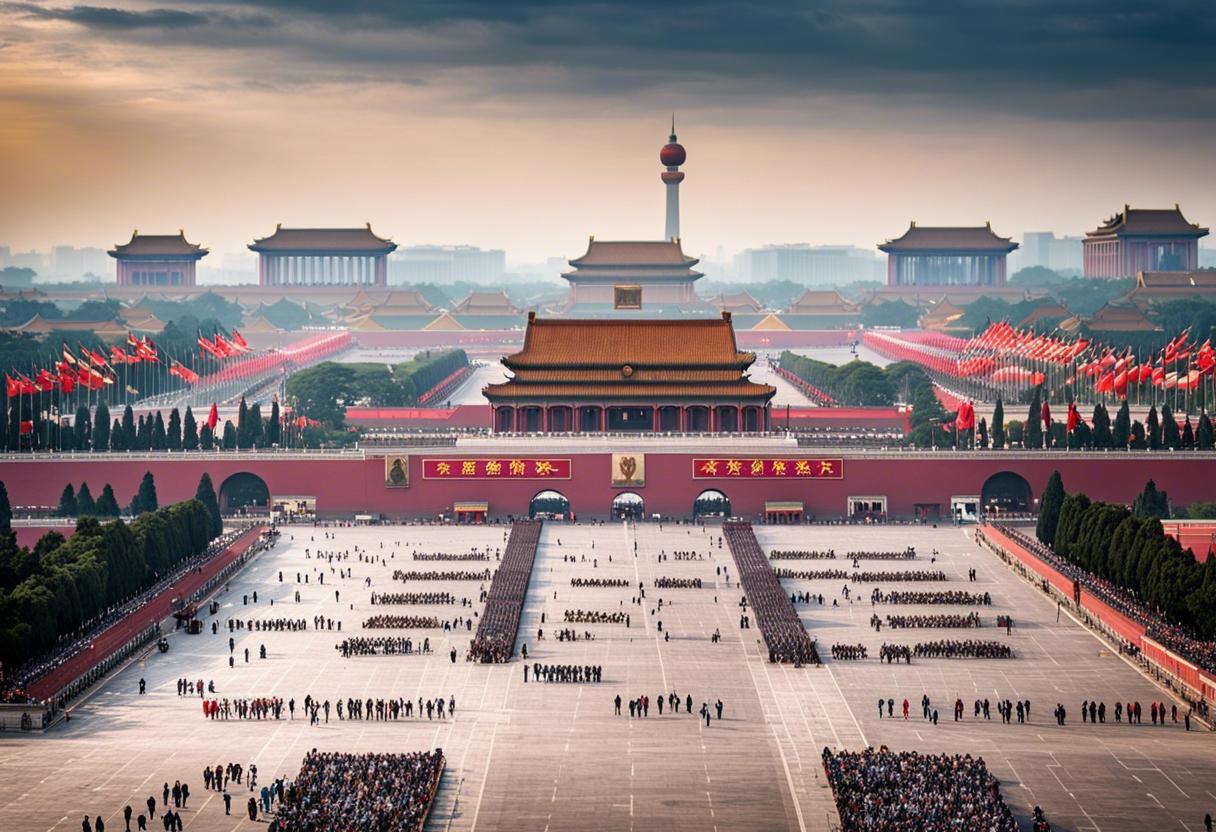On the 35th commemoration of the Tiananmen Square massacre, dated June 4, 1989, an increased level of security was witnessed in Beijing. During this deadly incident, Chinese military forces brought down hundreds of protesters, a narrative officially disputed by Chinese authorities who put the death toll at 241, including numerous soldiers. However, contrasting claims by protesters and western nations suggest that thousands of civilians were slain, with most agreeing that fatalities surpassed 1,000.
Simultaneously, in Hong Kong, authorities apprehended several individuals in the vicinity of Victoria Park at Causeway Bay, the traditional location of annual remembrance gatherings until 2020. This annual event of remembering the tragic Tiananmen Square incident was outlawed in 2020 due to the Covid-19 outbreak and has been restricted since amid a political crackdown following the introduction of a national security law by Beijing.
During Tuesday evening, diplomats from various EU consulates in the city visited the vigil site in Victoria Park, however, chose not to converse with the press or make public statements. Authorities in Hong Kong, making use of the recently implemented security law, detained eight individuals in the days leading to the anniversary. Their crime was suspected seditious activity tied to a “forthcoming sensitive date”.
When queried during a media briefing about the legality of commemorating the Tiananmen anniversary in Hong Kong, John Lee, the city’s chief executive, evaded a direct response but highlighted a perceived threat to national security.
Origins of the student-led protests in Tiananmen Square date back to April 1989, arising after the death of Hu Yaobang, a former Communist Party general secretary forced to resign in 1987 due to his democratic reform advocacy. Students from Beijing’s Peking and Tsinghua universities, among other protesters, convened in Tiananmen Square to honour Hu and advocate for sweeping changes, including free and unrestricted media, removal of limitations on protests, transparency on state leader wealth, and respecting Hu’s stand on democratic reform and his direct election proposal for party officials.
As the protests swelled in size, there was evident discord among the party leaders regarding the appropriate reaction. A faction led by Prime Minister Li Peng, who constituted the hardliners, advocated for a forceful suppression of the uprisings, while some implored for a conciliatory approach with the dissidents. During May’s mid-term, the students’ hunger strike garnered substantial public empathy, especially during Mikhail Gorbachev’s Beijing trip, culminating in a massive demonstration encompassing a million participants in the national capital in solidarity.
The exodus of Gorbachev marked a turning point, with Deng Xiaoping declaring martial law. Multiple attempts were made to infiltrate Tiananmen Square late in May, all in vain until the morning of June 4th. Enforced by armoured military vehicles and tanks, the army finally reached its destination. News spread globally of the massacre of the civilians that ensued, bolstered by media footage of a solitary defiant protestor standing against the imposing column of military tanks.
This past Tuesday, the President of Taiwan, William Lai, emphasised his commitment to preserving the memory of the events that took place on June 4th, 1989. He said, “This stands as a poignant reminder of the challenges to achieving democracy and freedom. It is essential to foster democratic consensus and counter authoritarianism through the persistent pursuit of freedom.”

